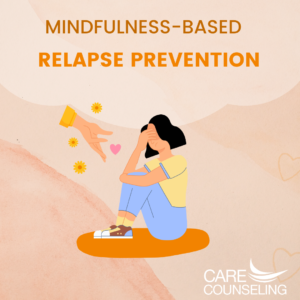Mindfulness-Based Relapse Prevention
 For individuals seeking to overcome substance abuse, relapse prevention is a crucial component of their recovery process. One powerful approach that has gained significant attention in recent years is Mindfulness-Based Relapse Prevention (MBRP). In this blog post, we will explore how mindfulness techniques can be incorporated into relapse prevention strategies for individuals in recovery.
For individuals seeking to overcome substance abuse, relapse prevention is a crucial component of their recovery process. One powerful approach that has gained significant attention in recent years is Mindfulness-Based Relapse Prevention (MBRP). In this blog post, we will explore how mindfulness techniques can be incorporated into relapse prevention strategies for individuals in recovery.
Understanding Mindfulness
Before delving into the specifics of MBRP, it’s essential to have a clear understanding of mindfulness. Mindfulness is the practice of paying deliberate attention to the present moment without judgment. It involves observing your thoughts, feelings, and bodily sensations without trying to change or react to them. Mindfulness encourages individuals to be fully present in their experiences, fostering self-awareness and emotional regulation.
Mindfulness-Based Relapse Prevention (MBRP)
MBRP is an adaptation of the Mindfulness-Based Stress Reduction (MBSR) program developed by Dr. Jon Kabat-Zinn. MBRP was specifically designed to address the unique challenges faced by individuals in recovery from addiction. It combines mindfulness techniques with elements of traditional relapse prevention strategies to create a comprehensive approach.
Incorporating Mindfulness into Relapse Prevention
- Increasing Self-Awareness:
– One of the fundamental aspects of MBRP is enhancing self-awareness. Through mindfulness practices, individuals learn to recognize the early signs of cravings, triggers, and negative emotions that could lead to relapse.
– By becoming more attuned to their thoughts and emotions, individuals can catch potentially destructive patterns before they escalate.
- Acceptance and Non-Judgment:
– Mindfulness encourages individuals to accept their thoughts and feelings without judgment. This acceptance can be particularly valuable in the context of addiction recovery.
– Rather than berating themselves for experiencing cravings or negative emotions, individuals learn to acknowledge these experiences without shame. This non-judgmental stance reduces the likelihood of self-destructive behaviors.
- Developing Coping Skills:
– MBRP teaches participants various mindfulness techniques to manage cravings and stress. Deep breathing exercises, body scans, and meditation can help individuals stay grounded and avoid impulsive actions.
– By practicing these techniques regularly, individuals build a toolkit of coping skills that can be utilized during challenging moments.
- Mindful Decision-Making:
– Addiction often involves impulsive decision-making. MBRP emphasizes making conscious and mindful decisions.
– Individuals are encouraged to pause and reflect on the consequences of their actions before acting. This mindful decision-making process can prevent relapse by promoting better choices.
- Recognizing Triggers:
– Mindfulness helps individuals identify their triggers – people, places, or situations that may lead to cravings or risky behavior.
– Once triggers are recognized, participants can develop strategies for avoiding or navigating them mindfully.
- Managing Stress and Emotions:
– Addiction often co-occurs with high levels of stress and emotional turmoil. Mindfulness provides tools for managing these stressors effectively.
– By learning to stay present and respond to stressors mindfully, individuals can prevent the build-up of negative emotions that might lead to relapse.
- Building Resilience:
– MBRP fosters resilience by teaching individuals to approach life’s challenges with equanimity. Through mindfulness, participants learn to face difficulties with greater acceptance and adaptability.
– This resilience is a crucial asset in maintaining sobriety, as it helps individuals navigate the ups and downs of recovery without turning to substances.
Mindfulness-Based Relapse Prevention represents a promising approach for individuals in recovery from addiction. By incorporating mindfulness techniques into traditional relapse prevention strategies, MBRP equips participants with powerful tools to maintain sobriety and lead healthier, more balanced lives.
MBRP is not a one-size-fits-all solution, but it offers a holistic approach that complements other elements of addiction recovery. It empowers individuals to take an active role in their healing process, ultimately leading to lasting recovery and a brighter future.



























